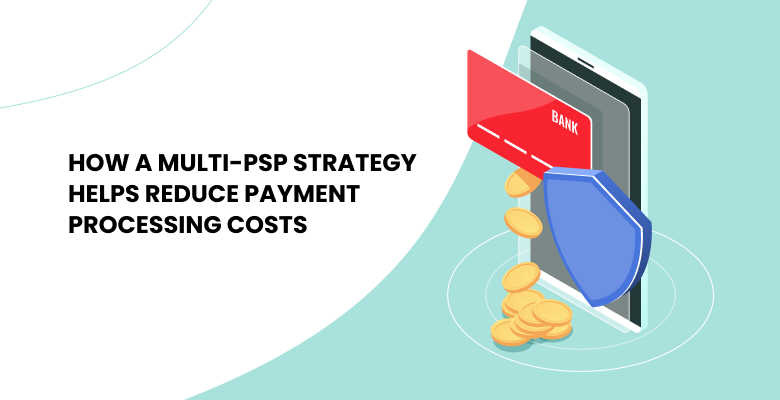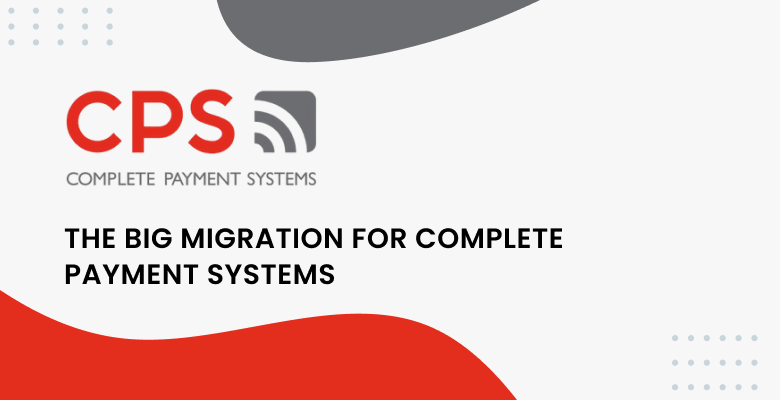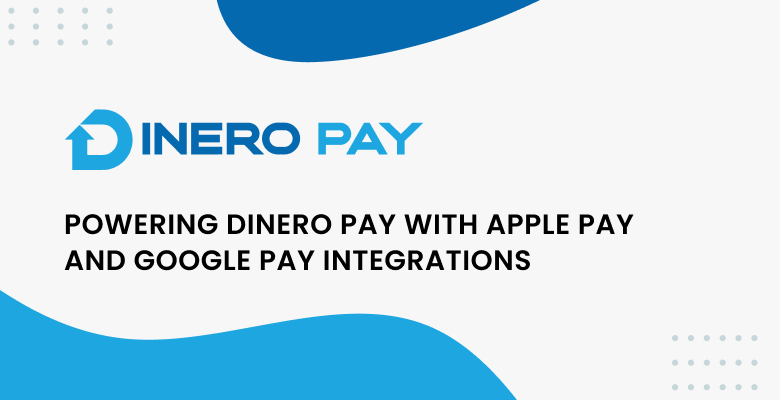
- Why Businesses Are Rethinking the One-PSP Model
- Key Benefits of a Multi-PSP Approach:
- Do Multiple PSPs Multiply Payment Success?
- Beyond Redundancy: Why the Setup Matters
- Smart Routing, Real Results
- Key Capabilities That Drive Success:
- Lowering Costs with Smart Routing and Fee Benchmarking
- The Real Cost of Static Routing
- How We Help Optimize Costs
- More Than Savings — More Control
- From Stability to Scale: Making the Multi-PSP Model Work
- Implementation, Simplified
- Conclusion: The Case for Change
- FAQs
For global businesses, payment processing costs are no longer a side note — they’re a boardroom topic. Between growing cross-border sales, evolving customer expectations, and constant regulatory shifts, payment teams face mounting pressure to reduce costs while maintaining performance and uptime.
Many still rely on a single Payment Service Provider (PSP), thinking it’s simpler or more manageable. But that legacy approach comes at a price: higher blended transaction fees, poor regional approval rates, and zero fallback when things go wrong.
Today, with rising interchange fees, provider fragmentation, and inconsistent performance across markets, relying on one PSP is a strategic liability. A multi-PSP strategy is not just an upgrade. It’s a way to regain control, flexibility, and cost efficiency. By allowing businesses to dynamically route transactions to the best-performing or lowest-cost providers, this strategy directly impacts profit margins, customer experience, and risk resilience.
At Akurateco, we help global merchants implement a multi-PSP strategy tailored to their infrastructure, risk profile, and growth plans. Whether you’re a SaaS company scaling into new regions, or an eCommerce merchant frustrated with your current PSP’s rates, we offer the tools and expertise to orchestrate payments that are smarter, not more complicated.
What You’ll Learn in This Article:
- Why relying on a single PSP inflates costs and limits flexibility
- How PSP smart switching systems reduce fees and improve approval rates
- The role of failover routing in payments for uptime protection
- How regional optimization improves performance and lowers risk
- What implementation with Akurateco looks like (spoiler: faster than you think)
- How smart routing brings real business impact through improved metrics and savings
Why Businesses Are Rethinking the One-PSP Model
In today’s payment landscape, complexity isn’t the exception—it’s the norm. Businesses now manage:
- Multiple markets, each with unique regulations and payment preferences
- Blended transaction fees that vary wildly depending on method, geography, and volume
- PSPs with fluctuating uptime, approval rates, and settlement terms
And yet, many still route 100% of their transactions through a single provider. The result? Missed savings, lost sales, and a lack of leverage in negotiations. Moreover, reliance on one PSP limits your ability to test and optimize transaction flows based on real-world performance data.
A multi-PSP strategy changes that. By utilizing a multi-PSP strategy, companies can choose the best route for each transaction, based on region, card BIN, payment method, or even real-time success rates.
Key Benefits of a Multi-PSP Approach:
- Cost Optimization: Route payments through the lowest-cost provider using fee-based PSP routing logic
- Improved Resilience: Rely on built-in failover routing in payments to prevent lost sales during outages
- Higher Approval Rates: Use geo-based payment routing to improve PSP approval rate improvement in specific markets
- Greater Flexibility: Add or switch providers easily with a modular PSP architecture
- Better Negotiation Leverage: Benchmark providers and create competition among them
If you’ve been asking, “How do I lower my payment processing costs without disrupting operations?” — this article is for you.
Do Multiple PSPs Multiply Payment Success?
It’s a fair question. Most companies know that using more than one Payment Service Provider can diversify their setup—but does it actually improve performance?
In short: yes. But only if it’s done right.
A successful multi-PSP strategy isn’t just about stacking providers. It’s about making smarter decisions per transaction. Using the right logic, data, and technology, businesses can turn what seems like complexity into a competitive advantage.
Beyond Redundancy: Why the Setup Matters
Many payment teams still think of PSPs as a one-time setup decision. You pick one that works globally and stick with it for simplicity. But payment performance isn’t static—it changes with your business, your markets, and your volume.
That’s why the importance of a multi-psp strategy grows as companies scale. Not only does it protect revenue during outages (thanks to redundancy), but it also helps optimize cost and success rates across regions.
Akurateco’s PSP routing engine uses real-time performance metrics to route each transaction to the most suitable provider based on:
- Success rates: If one PSP underperforms for a particular BIN or card type, switch automatically.
- Cost: Route to the most cost-effective PSP using fee-based logic.
- Location: Route by country, region, or preferred local APM using geo-based payment routing.
- Fallback logic: In case of failure, retry through a backup PSP, without user friction.
Smart Routing, Real Results
Here’s an example. A SaaS platform operating in the Middle East and Europe noticed a 7% drop in approval rates on mada cards in KSA. Their single PSP had low local coverage and no direct connection to mada. With Akurateco, they were able to employ a multi-psp strategy, add a regional provider with mada support, and use BIN-based PSP routing to dynamically route Saudi transactions.
The result? A 12% increase in approval ratesб and a clear financial impact.
“Too many companies see PSP setup as a one-time decision. In reality, it should evolve with your business. A multi-PSP strategy gives you the flexibility to adapt. We’ve seen merchants gain millions in recovered revenue simply by rerouting transactions to better-performing providers.” — Volodymyr Kuiantsev, Co-Founder and CEO at Akurateco
Key Capabilities That Drive Success:
- PSP performance benchmarking
- PSP smart switching system that adapts in real-time
- Seamless vendor-neutral payment infrastructure
- Full visibility into success rates, error codes, and transaction costs
This isn’t just theory — it’s what Akurateco delivers every day. We work with global merchants to institute a multi-psp strategy that brings real results without technical chaos.
Let’s Rethink Payment Architecture
Adding more PSPs doesn’t mean more headaches—if you have the right tools. With orchestration, analytics, and intelligent routing, it becomes a strategic asset.
Want to know which providers are underperforming in your stack?
Check out our complete PSP launch checklist
Lowering Costs with Smart Routing and Fee Benchmarking
Let’s get straight to it: rising fees are crushing payment margins.
Many businesses assume payment costs are fixed. You sign a contract, accept the blended rate, and move on. But in practice, transaction costs vary widely depending on the provider, region, and payment method. What’s more, most merchants are overpaying without even knowing it.
A multi-PSP strategy allows you to break this cycle. By routing transactions based on real-time performance and cost, merchants can reduce unnecessary fees, renegotiate better terms, and drive sustainable margin improvement.
At Akurateco, we’ve helped clients utilize a multi-PSP strategy to achieve up to 15% cost savings on processing fees, without disrupting operations or changing payment methods. That’s the power of smart routing.
The Real Cost of Static Routing
A static setup sends all transactions to one PSP. no matter the geography, method, or fee structure. Even if a provider charges more for cross-border transactions or performs poorly in a certain region, those payments still go through them.
This leads to:
- Blended transaction fees that are higher than necessary
- Missed opportunities to route to cheaper local acquirers
- Inability to compare PSPs and create pricing pressure
With Akurateco’s orchestration software for payments, you get complete visibility into provider performance and cost. That means no more guessing—and no more overpaying.
How We Help Optimize Costs
Our platform benchmarks every connected PSP on key metrics like:
- Transaction success rate
- Average processing fee
- Approval rate by card BIN and region
- Downtime and retry patterns
Once that data is available, we build custom routing rules. For example:
- Route EU Visa cards to the lowest-fee acquirer with >95% success
- Use fee-based PSP routing logic for high-volume markets like Germany or France
- Set fallback rules to avoid retries with high-cost providers
- Switch to lower-cost PSPs automatically when fee thresholds are exceeded
With our SaaS payment orchestration tools, optimization happens behind the scenes—automatically and efficiently.
Example: One of our clients selling digital goods across Europe was paying a flat 2.9% on every transaction. After onboarding with Akurateco and using dynamic routing, they brought their average fee down to 2.1% by leveraging local PSPs in Germany, Italy, and the Netherlands. The result? Over $280,000 in annual savings.
More Than Savings — More Control
Cost savings are just the start. When you implement a multi-PSP strategy, you gain:
- Leverage to renegotiate PSP contracts using real benchmarks
- Transparency into where your margin is lost (and how to reclaim it)
- Scalability as you grow into new regions without fee surprises
From Stability to Scale: Making the Multi-PSP Model Work
Reliability Isn’t Optional—It’s Revenue Protection
Even the best-performing PSPs go down, whether due to technical issues, regional outages, or provider-side maintenance. For merchants operating at scale, a few minutes of downtime can mean thousands in lost revenue.
That’s why failover routing in payments is a key pillar of any successful multi-PSP strategy. With Akurateco’s PSP smart switching system, transactions are automatically rerouted in real time when the primary provider fails—no manual intervention, no customer friction.
Example: A large fintech operating in LATAM suffered a 2-hour outage due to a local acquirer issue. With Akurateco’s PSP uptime protection logic in place, transactions were instantly redirected to a backup PSP. The business avoided nearly $100K in revenue loss.
When you employ a multi-PSP strategy, you’re not just adding redundancy—you’re building resilience.
Regional Optimization: Because One Size Doesn’t Convert All
Different regions = different payment behaviors. In Brazil, many customers prefer boleto bancário. In Saudi Arabia, mada is essential. And in the EU, success rates vary based on local acquirers.
Akurateco enables regional payment optimization using:
- BIN-based PSP routing to route cards to the best local acquirer
- Geo-based payment routing to match regional preferences
- Performance data to maximize PSP approval rate improvement
“Even small changes in how you route transactions—like switching providers for a specific BIN or country—can lead to big improvements in approval rates. That’s why flexibility and data-driven logic are critical in global payment setups.”
— Andrew Riabchuk, Founder and CTO at Akurateco
Implementation, Simplified
You might be wondering: “Sounds great—but how complex is the setup?”
Good news: Akurateco is designed to make transition frictionless.
Here’s how we help implement a multi-PSP strategy without disrupting your business:
- Plug-and-play integration with over 200+ PSPs globally
- Seamless migration with minimal dev involvement
- Built-in compliance, security, and monitoring tools
- A modular PSP architecture that adapts as you grow
- Full transparency through our orchestration dashboard
Our system is vendor-neutral, meaning you’re never locked in. You can add or remove PSPs without technical hassle, giving you full control over your payment stack.
Conclusion: The Case for Change
In today’s dynamic landscape, a static PSP setup is no longer good enough. As your business scales, so do your risks, fees, and missed opportunities.
A multi-PSP strategy is more than an upgrade—it’s an insurance policy, a cost-control lever, and a performance multiplier.
If you want to reduce fees, boost reliability, and improve global payment success rates, Akurateco has the tools — and the expertise — to help you optimize payments through a multi-PSP strategy.
FAQs
What’s the difference between a payment gateway and a payment orchestrator?
A payment gateway connects you to a single PSP. A payment orchestrator like Akurateco connects you to many and routes transactions intelligently using real-time logic.
Can I keep my current PSP and still add others?
Yes. Our platform supports adding PSPs without replacing your current provider—enabling a flexible PSP infrastructure.
How can I measure PSP performance and success over time?
With our built-in PSP performance benchmarking tools, you can track success rates, fees, and uptime across all providers.
Is there a risk of overcomplicating my stack?
Not with orchestration. We simplify PSP management with centralized monitoring, routing rules, and smart automation.
How fast can a multi-PSP strategy be implemented?
Many merchants are fully operational within weeks. Akurateco supports rapid onboarding and eCommerce PSP management without major disruptions.






